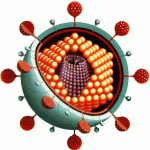Virology
|
28 may 2015 07:07:30 |
| Making health insurance pro-poor: evidence from a household panel in rural China (Epidemiologic Perspectives & Innovations) |
|
Tweet Background:
In 2002, China launched the largest public health insurance scheme in the world, the New Cooperative Medical Scheme (NCMS). It is intended to enable rural populations to access health care services, and to curb medical impoverishment. Whether the scheme can reach its equity goals depends on how it is used, and by whom. Our goal is to shed light on whether and how income levels affect the ability of members to reap insurance benefits.
Methods:
We exploit primary panel data consisting of a complete census (over 3500 individuals) in three villages in Puding County, Guizhou province, collected in 2004, 2006, 2009 and 2011. Data was collected during in-person interviews with household member(s). The data include yearly gross and net medical expenses for all individuals, and socio-economic information. We apply probit, ordinary least squares, and tobit multivariate regression analyses to the three waves in which NCMS was active (2006, 2009 and 2011). Explained variables include obtainment, levels and rates of NCMS reimbursement. Household income is the main explanatory variable, with household- and individual-level controls. We restrict samples to rule out self-selection, and exploit the 2009 NCMS reform to highlight equity-enhancing features of insurance.
Results:
Prior to 2009 reforms, higher income in our sample was statistically significantly related to higher probability of obtaining reimbursement, as well as higher levels and rates of reimbursement. These relations all disappear after the reform, suggesting lower-income households were better able to reap insurance benefits after the scheme was reformed. Regression results suggest this is partly explained by reimbursement for chronic diseases.
Conclusions:
The post-reform NCMS distributed benefits more equitably in our study area. Making health insurance pro-poor may require a focus on outpatient costs, credit constraints and chronic diseases, rather than catastrophic illnesses. |
| 135 viewsCategory: Pathology, Virology |
 A GSDMB enhancer-driven HSV thymidine kinase-expressing vector for controlling occult peritoneal dissemination of gastric cancer cells (Epidemiologic Perspectives & Innovations) A GSDMB enhancer-driven HSV thymidine kinase-expressing vector for controlling occult peritoneal dissemination of gastric cancer cells (Epidemiologic Perspectives & Innovations)IgG4-associated orbital and ocular inflammation (Epidemiologic Perspectives & Innovations) 
|
| blog comments powered by Disqus |
MyJournals.org
The latest issues of all your favorite science journals on one page
The latest issues of all your favorite science journals on one page



